Is it safe to leave an electric fan on overnight? Appliance experts share safety advice
Trying to keep cool through the night? Keeping your trusty fan running may not be your best option
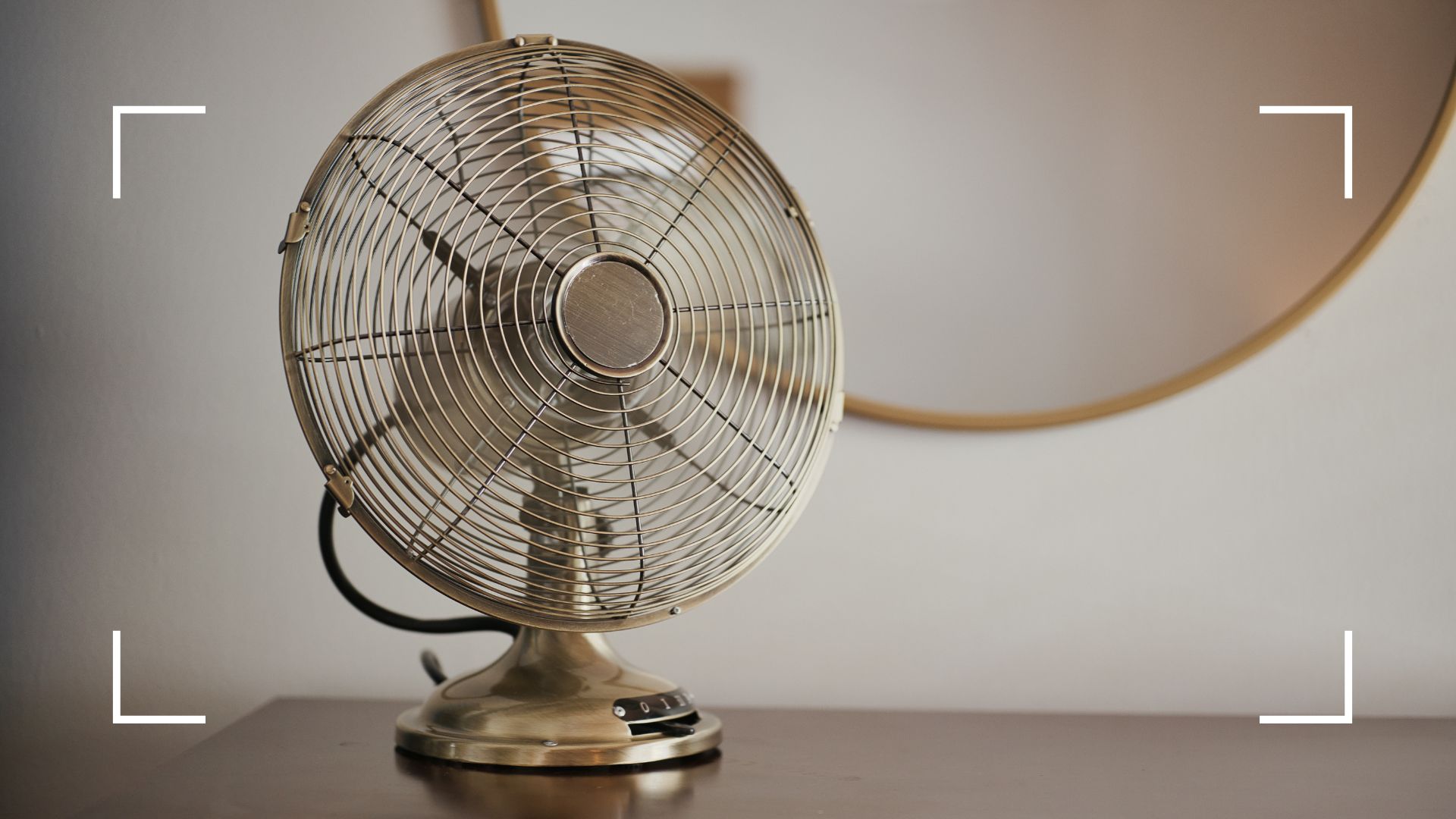

During the hot weather, we're all looking for ways to stay cool – both day and night. Keeping your electric fan on into the evening might seem tempting but it may not be the best idea to leave it running while you drift off.
When finding ways to keep cool in the summer, a fan is usually the number one choice. However, after running your fan all day, you may question if it's safe to keep it on to keep your bed cool during the night.
Running a fan for that long may seem necessary but what are the safety issues of running an appliance without breaks? Is it safe to leave an electrical appliance running all night? We spoke to appliance and electrical specialists to find out.
Is it safe to leave an electric fan on overnight?
When it comes to sleeping in the heat, there are a few things that can help you get enough rest. Whether that's investing in the best sheets to keep you cool or choosing from the best cooling mattresses, the sleep environment you create can change things.
Ian Palmer-Smith, an appliance repair expert at Domestic & General, says, "I would never recommend leaving your fan on overnight. With the hot evenings, it can be very tempting to leave it on as you sleep, but there are two key issues that make this a bad idea."
"Firstly, if a fault occurs in the equipment while you are asleep, you are putting both yourself and your family at risk. Secondly, cooling fans circulate air, but they also spread dust mites, spores, pollen, and other allergens around the rooms," he continues.
Should you be a hayfever sufferer then this can cause symptoms to worsen or present themselves. Ian explains that leaving your fan on during the night can also dry out your nose and throat, potentially making you feel ill.
Sign up to our free daily email for the latest royal and entertainment news, interesting opinion, expert advice on styling and beauty trends, and no-nonsense guides to the health and wellness questions you want answered.
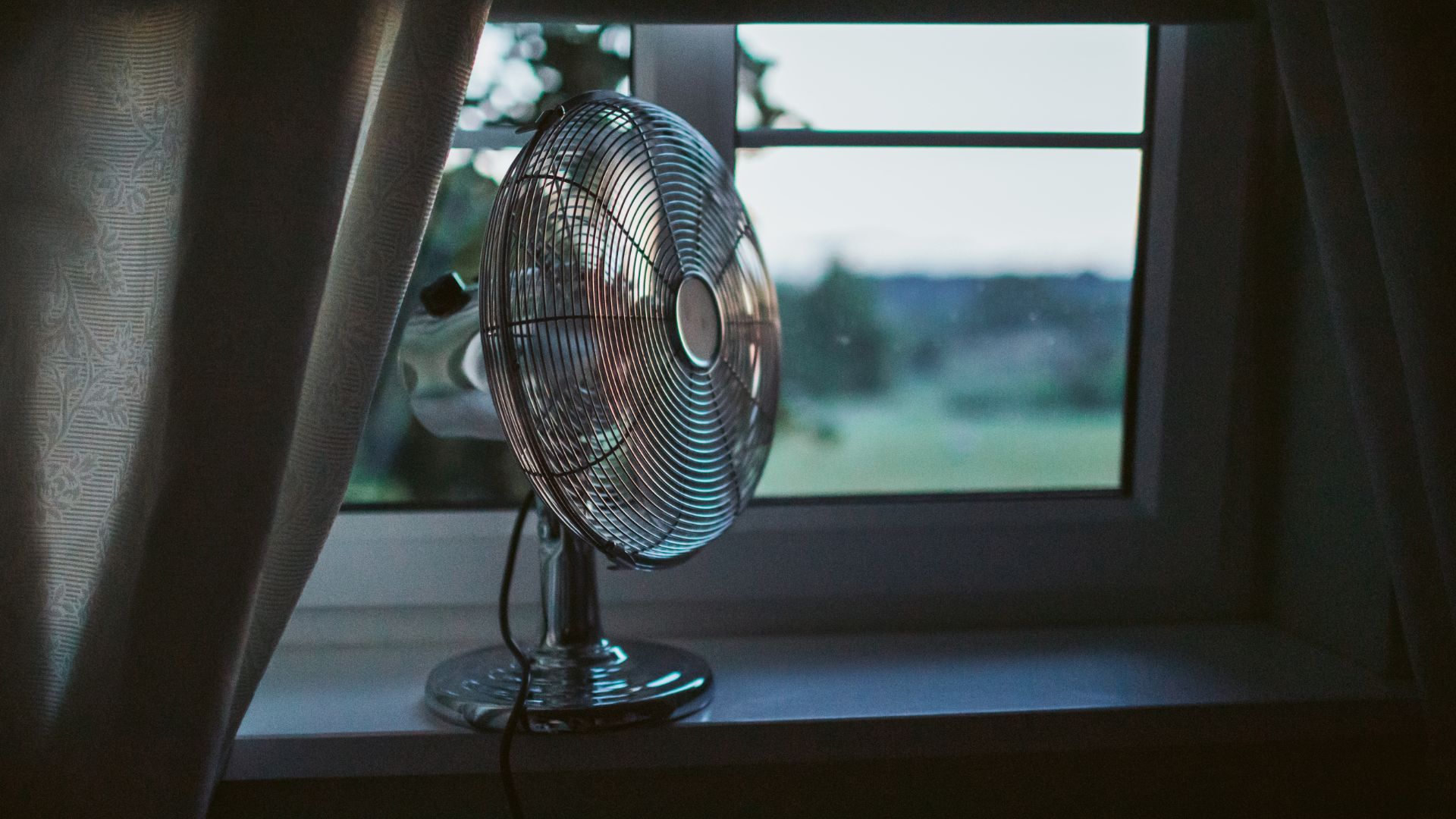
Speaking to a licensed electrician at Fantastic Services, David Miloshev, he says, "To prevent electric fires and dust circulation, it’d be safest to turn it off before you go to sleep. Also, I’d highly recommend checking and making sure your smoke alarm systems are in working order."
Suggesting an alternative way to keep a bedroom cool he says: "Invest in thick dark curtains, which you can draw to preserve the cool air indoors instead of being heated by the sun in the morning."
And whilst the cost of running an electric fan isn't too much, there is a matter of energy consumption to consider too.
David explains, "You’ll also need to consider the problem of energy consumption. Even though electric fans are generally more energy-efficient compared to air conditioning units, it's still something to keep in mind if you are concerned about your bills."
How long should you leave an electrical fan on?
So how long can you keep your fan on without it becoming a safety issue? Even when you're using some expert fan hacks, there is still a limit to how long you should ideally use the appliance.
"Besides the risk of an electrical fire and health complications, when you leave the electric fan on for too long, you’re also running the risk of burning its motor. Even though that shouldn’t happen for a while if the fan isn’t a cheap model, it’d still be good to keep it running with caution," explains David.
It's still difficult to determine an exact time limit when it comes to how long you should keep your fan on. David says this timing could depend on several factors, such as the quality of the fan, how well it's maintained and how much it's used. That's why it's important to know how to clean a fan properly.
"Most electrical fans are designed to be able to run continuously for several hours at a time, for example overnight or during the day, but you’ll also need to keep in mind doing that continuously for long periods can cause wear and tear on the motor and other components, shortening its lifespan," continues David.
Different low-energy electric fan options
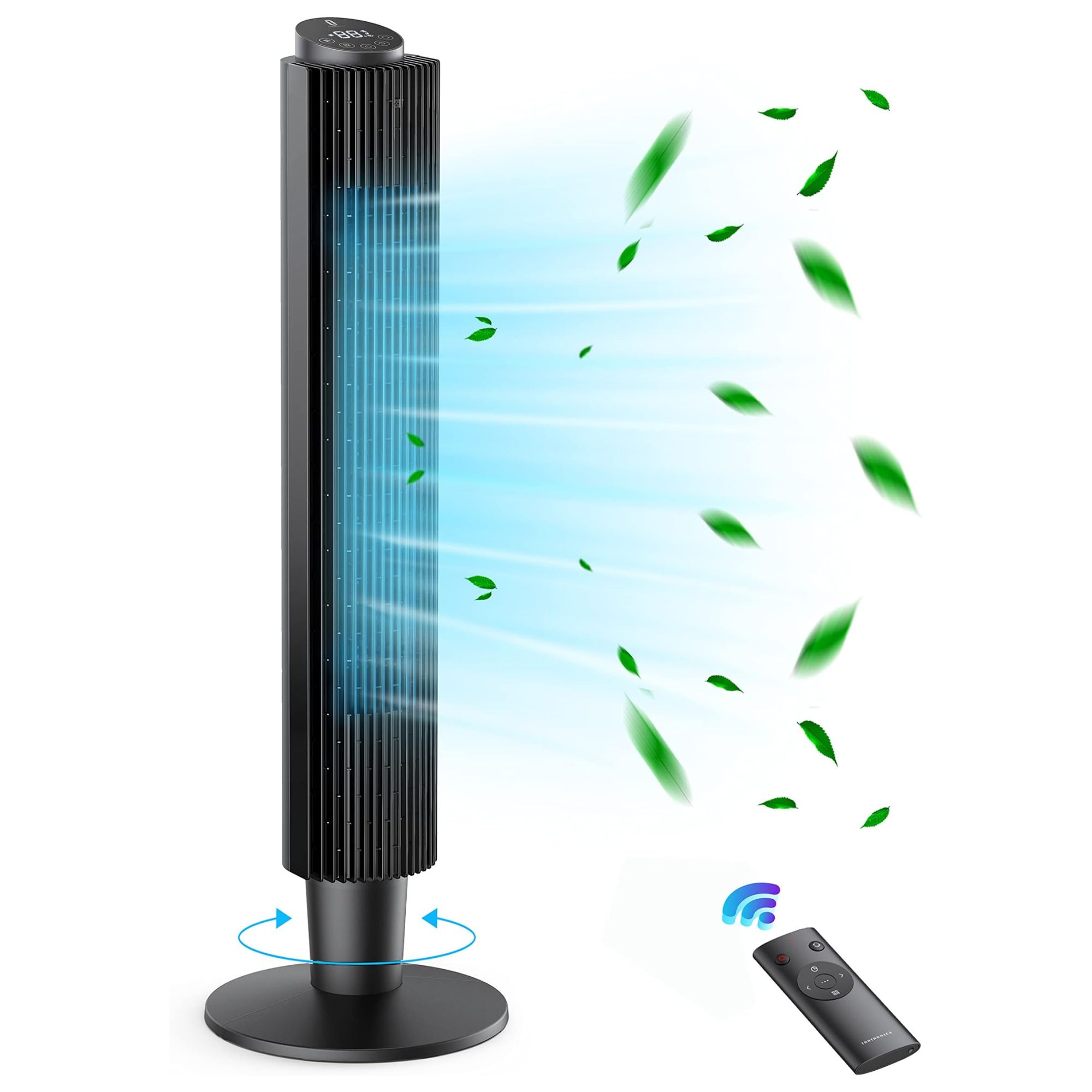
RRP: £89.99 | This tower fan is perfect for bedrooms as it has a quiet cooling mode as well as a sleep mode with a 12-hour timer. With five fan speeds and a 90-degree oscillation, you really can't ask for more from a domestic fan running off 45 watts.
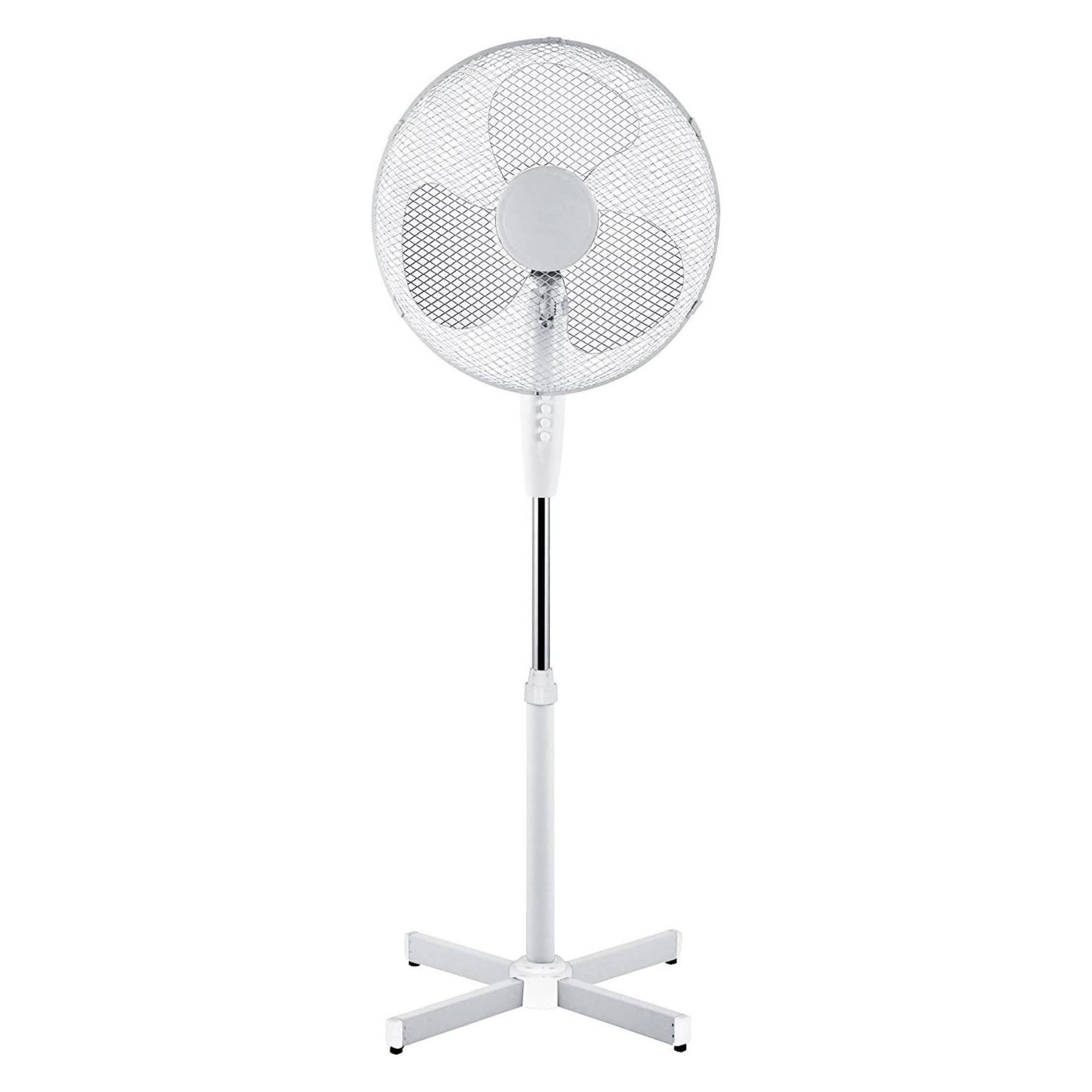
RRP: £16.99 | Looking to keep it simple? This extendable 45-watt floor-standing fan is perfect for doing the job without all the faff of a more complex model. It has a three-speed setting and an easy-to-use button control panel.
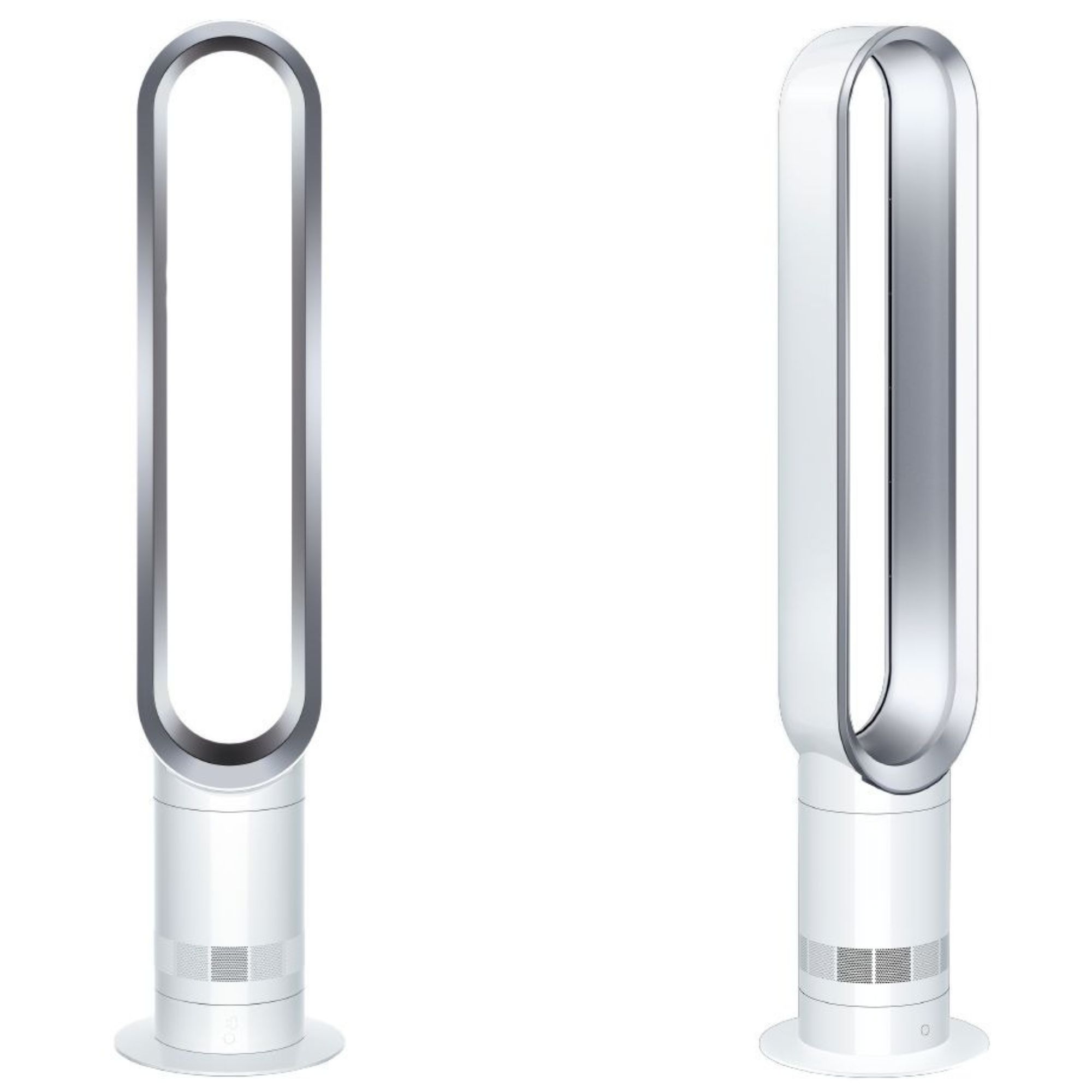
RRP: £349.99 | Should you have a larger space to cool then this powerful 56-watt tower fan from Dyson is the ideal model for that. Its airflow technology is designed to cool spaces fast and with minimal noise making it great for bedrooms or a living room.
The key to keeping both you and your fan happy and functioning, is only using it either through the day or through the night. David recommends giving your fan periodical breaks to prevent overheating and extend its lifespan as well as investing in other cooling solutions around your home.
He says, "Use the appropriate setting, for example, a lower setting to help reduce wear on the motor and regularly inspecting it for signs of wear and tear, such as unusual noises and vibrations."

Emily joined woman&home as a staff writer after finishing her MA in Magazine Journalism from City University in 2023. After writing various health and news content, she now specialises in lifestyle, covering unique cleaning hacks, gardening how-tos, and everything to help your houseplants thrive.